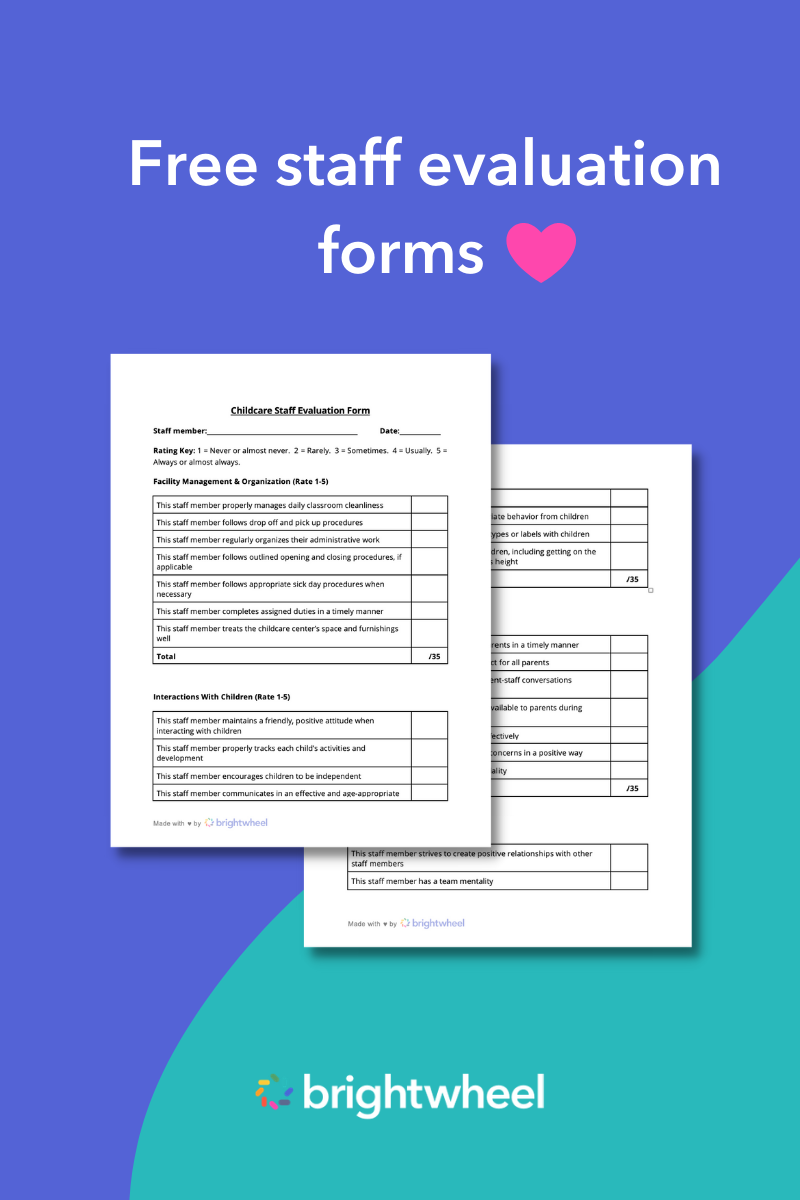
Whether you’re an early childhood educator or planning to follow this career path in the future, you may have considered getting your undergraduate or postgraduate degree in early childhood education (ECE).
Earning an initial degree in this field can teach you the basic practices and theories of early childhood education, like child development, infant and toddler care, early literacy strategies, methods of curriculum and instruction, and more. Higher degree types can be used to extend your knowledge or advance your career as an early childhood educator.
Whatever your goals, this guide will give you insights into the various types of ECE degrees and the opportunities associated with each. And most importantly, it will answer the fundamental question: do you need a degree in early childhood education?
Do you need a degree for early childhood education?
While it may seem like an easy question, the answer to whether you need an ECE degree isn’t quite so straightforward. You most likely need a degree, but it depends on the type of early childhood education you wish to do and where you choose to pursue it.
There are many careers available in the early childhood education field, like a preschool teacher, child psychologist, childcare worker, early intervention specialist, nanny, and many more. Most of these require at least a two-year or four-year degree in early childhood education, but there are exceptions.
In-home nannies, for example, may not require any degree if the family feels comfortable with your childcare experience. Teacher’s assistants may also be qualified to work in classrooms supporting teachers through past experience or certification.
While these careers can get your foot in the door for an early childhood education career, they may be limited in upward mobility without additional education. That means earning your degree is important if your true goal is to teach children in a classroom or work with them on a more professional level. Let’s take a look at the types of degrees available.
Type of degree program
Early childhood education degrees range from undergraduate to postgraduate options and can take anywhere from two to eight years of education to complete. Common ECE degrees include:
Undergraduate degrees
Associate degrees take roughly two years to earn and qualify you for many entry-level positions in childcare centers. They’re also useful if you later decide to earn your bachelor’s degree, as many schools will give you credit for the coursework you’ve already completed.
Bachelor’s degrees are four-year degrees necessary for classroom educators in most public and private schools. Bachelor of arts (BA) degrees emphasize arts and humanities, while bachelor of science (BS) degrees tend to focus more on math and science. Obtaining a bachelor’s degree is typically a good investment in your future as studies have shown that higher educational attainment is associated with higher median earnings.
Postgraduate degrees
Master’s of Education (MEd) degrees typically take between one to three years after a bachelor’s degree to earn. Educators with a master’s degree can often start their careers at a higher level or advance more quickly into higher-level positions, as they’re seen to possess more knowledge around education concepts and have a deeper understanding of teaching strategies and philosophies.
Classroom teachers who choose to pursue their master’s degree in education are more likely to move into administrative positions or organizational director-level roles. Doctoral degrees, on the other hand, can require an additional two years of postgraduate studies and are often earned by those who wish to research the field of education or teach education concepts at a university level.
Degree alternatives
As previously mentioned, earning your ECE degree isn’t always required to pursue a career in early childhood education. Some states allow college graduates to apply for a teaching license even if they earned a degree in a different subject area. However, there are still other education requirements that new educators must meet that can be achieved through online training courses and certifications.
Online childcare training courses are a convenient way to learn new techniques and skills for keeping children safe and healthy. They also provide strategies for creating high-quality, inclusive, and developmentally-appropriate learning programs. The best part is that there are many free childcare training courses to help you advance your ECE career.
If you already have the education and experience required to work in early childhood education, obtaining additional certifications can help expand your knowledge and bolster your credentials. The Child Development Association (CDA) certification, for example, is available for anyone with a high school diploma who obtains the necessary training hours on CDA-approved subject areas related to high-quality education and care services for children under five.
What can you do with an early childhood education degree?
For educators with degrees, there is a wide range of professional options for you to choose from (depending on the type of degree you earned). Here are a few.
Teacher
From preschool to kindergarten and elementary school, in-classroom teaching is among the most common occupations for those with an ECE degree. These roles change depending on the age of the children you’re teaching, but in general, they require you to design and teach age-appropriate lessons that support children’s overall physical, emotional, and cognitive development.
Childcare worker
Childcare workers share various responsibilities with preschool teachers; however, their roles typically occur outside of a traditional classroom setting. Typical responsibilities include fostering children’s critical skills development by overseeing learning activities, monitoring their progress, and tending to their basic needs like preparing meals or changing diapers.
Childcare center director
Childcare center and preschool directors don’t typically work with children in the classroom day to day. Instead they focus on the overall management of the organization. They hire and train educators and staff, design curriculums, manage budgets, and develop policies and procedures. Directors also usually oversee the daily administrative operations of the center, including the admissions process. A tool like brightwheel’s center management feature streamlines enrollment, record keeping, and reporting, helping directors stay organized and save time.
School counselor
School counselors collaborate with children, educators, and families to support learners and help them develop the social or academic skills they need to succeed in school. They help identify and find solutions to the challenges that children face in an academic setting.
University professor
Educators with an advanced degree may decide to teach early childhood education concepts at the university level or research the philosophies and best practices around childcare and child development.
How to choose a degree program
When choosing an early childhood education degree program, it’s important to find one that offers the type of degree and coursework that aligns with your career goals. Questions like these can help you make the right decision:
- What is the reputation of the school’s ECE program?
- Does the program offer the specific courses I need to get the job I want?
- Are classes online or in a traditional classroom?
- Are classes lecture-based or hands-on?
- Will another university accept an associate degree from this school if I choose to pursue a bachelor’s degree in the future?
- How soon after I graduate can I apply for certification?
Having a sense of your career goals and answering these questions will give you the best chance of choosing the degree program that’s right for you.
Conclusion
A degree in early childhood education can give you more advanced knowledge of child development or teaching strategies and open up more job opportunities. While earning a degree in early childhood education isn’t always required to work with children, it’s crucial for many in-classroom and higher-level management positions. The type of degree you choose to pursue may differ based on your career goals and there are also degree alternatives such as online courses that can help you advance in your career.

